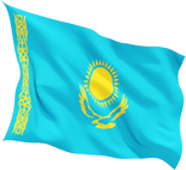Certainly, forming a fair judicial system has never been easy; most countries in the world are struggling with corruption, political interference and a number of other problems that undermine the integrity of the legal system. Uzbekistan is one of those countries that have faced serious problems in building a fair judicial system. In this article we will dwell on these problems and how their solutions are being achieved.
Systemic challenges hindering the rule of law and ensuring the stability of justice
One of the main problems hampering the development of the judicial system in Uzbekistan was the existence of corruption cases. Moreover, corruption in the legal system in recent years has undermined public confidence, damaged the impartiality of judges, and injustices have been noted as a consequence. This problem has not only affected the country’s legal reputation, but has also hindered economic development and foreign investment.
Lack of transparency was another major problem…
Trials were often held behind closed doors and out of public view. This led to an environment that undermined confidence in the judicial and legal system as a result of a number of unjustified and arbitrary decisions.
How has the situation changed? Have the actions taken been successful?
The institution of the pre-trial hearing was introduced in order to guarantee human rights and introduce the principle of adversarial proceedings in criminal cases. In order to ensure the transparency of judicial activity, more than 10,000 criminal cases are heard in circuit courts every year. As a precautionary measure, the duration of detention in custody and preliminary investigation has been shortened.
It should be noted that in recent years Uzbekistan has made considerable efforts to expand the scope of “Habeas corpus,” to liberalize penalties, and to further strengthen guarantees of human rights and freedoms in judicial and investigative proceedings.
For example, the procedure for returning a criminal case pending in court for further investigation has been abolished. This, in turn, has led to an increase in the number of acquittals. According to information published by the Supreme Court, in 2007-2015, courts acquitted only about 100 people, and in 2016-2022 – more than 4 thousand people.
At first sight, these indicators may seem like simple figures, but if we imagine that an unjustly accused person returns to his family, and is released, we can clearly understand how the effect of the implemented reforms has affected the fate of an ordinary person, because freedom is the highest good for a human being. All this is undoubtedly the result of judicial – legal reform aimed at ensuring the independence of judges.
Establishment of the High Council of Judges has become one of the notable reforms to strengthen the independence of judicial system. The council is responsible for appointing judges and ensuring their accountability. This action has been important in increasing the independence of the judiciary, reducing political influence on the courts and ensuring fairness in the judicial system.
Besides, Uzbekistan has adopted a comprehensive judicial and legal reform strategy. The strategy identifies key objectives such as increasing transparency, simplifying judicial processes, and expanding the availability of legal services for citizens. These reforms marked the beginning of a new phase in the judicial system.
In October 2020, for the first time in the history of national statehood, Uzbekistan has been elected as a member of the Human Rights Council, one of the main bodies of the United Nations. This historical event means that Uzbekistan is bring internationally recognized for ensuring human rights and freedoms.
Problematic cases have not been fully resolved, but being continuously improved
Noteworthy: problems are acknowledged on the high level. At a meeting of President Shavkat Mirziyoyev devoted to the priorities of ensuring fair justice, it was announced that an average of 1.5 million citizens apply to the courts every year; lack of power in making just decision in regional courts leads to bureaucracy. The judicial process is still run on old-fashioned ways, the reputation of lawyers is low, and investigators have stopped working on it, the head of state said at a meeting on November 14, 2022.
Initiatives to change the system
The introduction of electronic court systems in the courts of Uzbekistan has fundamentally changed the efficiency and transparency of court hearings. The digitization allowed to track cases in real time, reduce violations, and expanded citizens’ access to justice. Following the pronouncement of the adopted court decision, its meaning is explained to the court participants, and court decisions are regularly published on the website of the Supreme Court. Infusion of the automatic assignment of cases to judges has become an important step in preventing corruption and nepotism in the courts. Information and news regarding these reforms are regularly published.
It should be noted that there is a right of direct appeal of court decisions to a higher court. The implementation of the requirements of international standards for revision of judicial decisions (Article 14.5 of the International Covenant on Civil and Political Rights) serves to enhance the country’s prestige in international rankings of judicial independence, rule of law and efficiency of justice (The Rule of Law Index, the Economic Freedom of Judicial Performance Index, and Judicial independence indicators in the Global Competitiveness Index)
A short-term strategy on elevating the judicial system to a qualitatively new level for 2023-2026 was approved by the decree of the President of the Republic of Uzbekistan dated January 16, 2023. Within its framework, court activities will be digitized, artificial intelligence (AI) technologies will be introduced. Along with that, improving interagency information of digital information, expanding opportunities to participate in hearings online were defined as the tasks of ensuring just court hearings.
Ensuring gender equality in the country’s judicial system also remains a priority.
According to the data, there were 178 female judges in 2021. In 2022 the umber rose to 180. As of October 2023, 185 (16.4 percent) of the 1,125 judges serving in the judiciary are women. In addition, 12 (20.3 percent) of the 71 justices serving on the Supreme Court today are women.
There are challenges. But they will be overcome!
There are some remaining challenges in the system of ensuring effective enforcement of court decisions. To improve this system and solve the existing problem, there is a need to explore new approaches. It can be said that it is necessary to create a system of “direct execution of court documents” based on international standards. Only by improving the quality of enforcement of judgments can applicants’ confidence in the court and the justice system as a whole be maintained, and their rights and freedoms be reliably protected.
As conclusion
Crucial measures that have been implementing in the recent years in the field of justice have become important on the way of improving this system, bringing it closer to the principles of international standards, openness and fairness. Most importantly, this strengthens citizens’ trust in justice. Uzbekistan aspiring to correct its own mistakes, striving for transparency and accountability will lay the foundation for the formation of a justice system that ensures the rights of citizens, operating on the basis of international norms.
Abdulaziz Janturaev,
Member
of the Association of Young Lawyers











